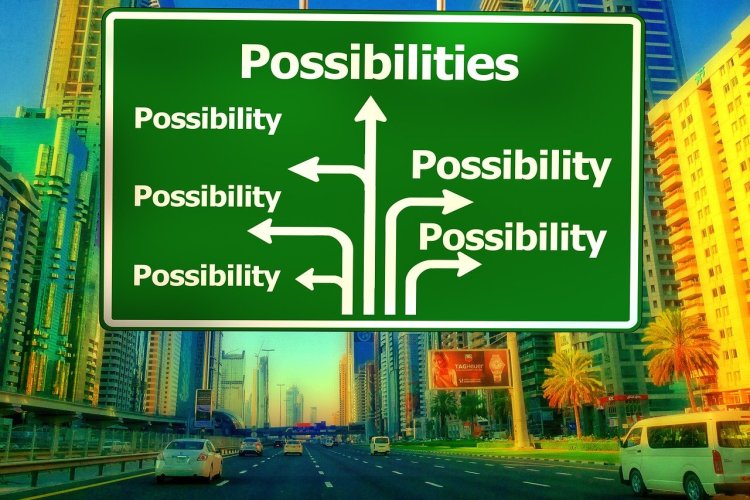Kierkegaard spends most of his writing talking about concepts such as anxiety or angst and despair. The Sickness Unto Death is a life changing book about the despair of not being one’s true self and also quite short at around a few hundred pages long, depending on the version.
One of his famous quotes is “anxiety is the dizziness of freedom”.
His concept of anxiety or angst is one of the most profound pre-Freudian works of psychology. Human beings enjoy a freedom of choice that we find both appealing and terrifying. It is the anxiety of understanding freedom when considering undefined possibilities of one’s life and one’s power of choice over them. Angst is one of the primary features of Kierkegaard’s philosophy. It is deeper than anxiety, it is a sort of dread, however – dread without an object. Which is worse than dread, you don’t see it coming, you just know something is wrong.
We have an infinite number of possibilities, and when we have to choose one, we become overwhelmed at the sheer amount of them. If you ask someone if they are an individual, they will undoubtedly say yes. However, one may possess the ability to freely act, but if one never uses it and gets lost in the infinite, thinking about an endless sea of possibilities, they are effectively not capable of freely acting.

The other part Kierkegaard emphasises is the finite. That is, not considering enough possibilities and just mindlessly going around the demands of culture and social expectations. The scary part is that most people are less aware of this, they see everything they do as their own choice. However, some people live a complete lie. They live because of what their mom and dad, friends, and society tell them that’s what one does.
Suppose a man that finds his high school sweetheart, they graduate together, they marry and have kids, they get a house mortgage and work at a normal job and so on. This man didn’t do all of this because he wanted to, but because that’s what he was expected to do. He then realises he’s been living a lie, divorces and quits his job. He moves out to find something meaningful in his life, he works in a fast food chain and romanticises about his future day after day, month after month, year after year.

For Kierkegaard, the only way out of this is to take a leap of faith, which may be the ultimate irrational experience, but for him it is the most reasonable thing you can do, you choose the person you are going to be rather than the world choosing for you.

And when you make that choice, you can actually act on it and be an individual. It is the ultimate subjective experience. This is his justification on why you should take a leap of faith towards true Christianity.
📚The Book
📺Watch The Full Video!🧠
Greatest Philosophers In History | Soren Kierkegaard
His concept of anxiety or angst is one of the most profound pre-Freudian works of psychology. His most popular work includes the leap of faith, the concept of angst, the three stages on life (aesthetic, ethical, religious) and the absurd, among others.
Support Eternalised







Taking a leap of faith towards ones true self will always result in coming home. Kierkegaard was truly timeless in his wisdom.
So true. He left us with some amazing books. Thanks for taking the time to read and commenting!
No worries, I have been reading many of your posts and I really enjoy them, great insights!